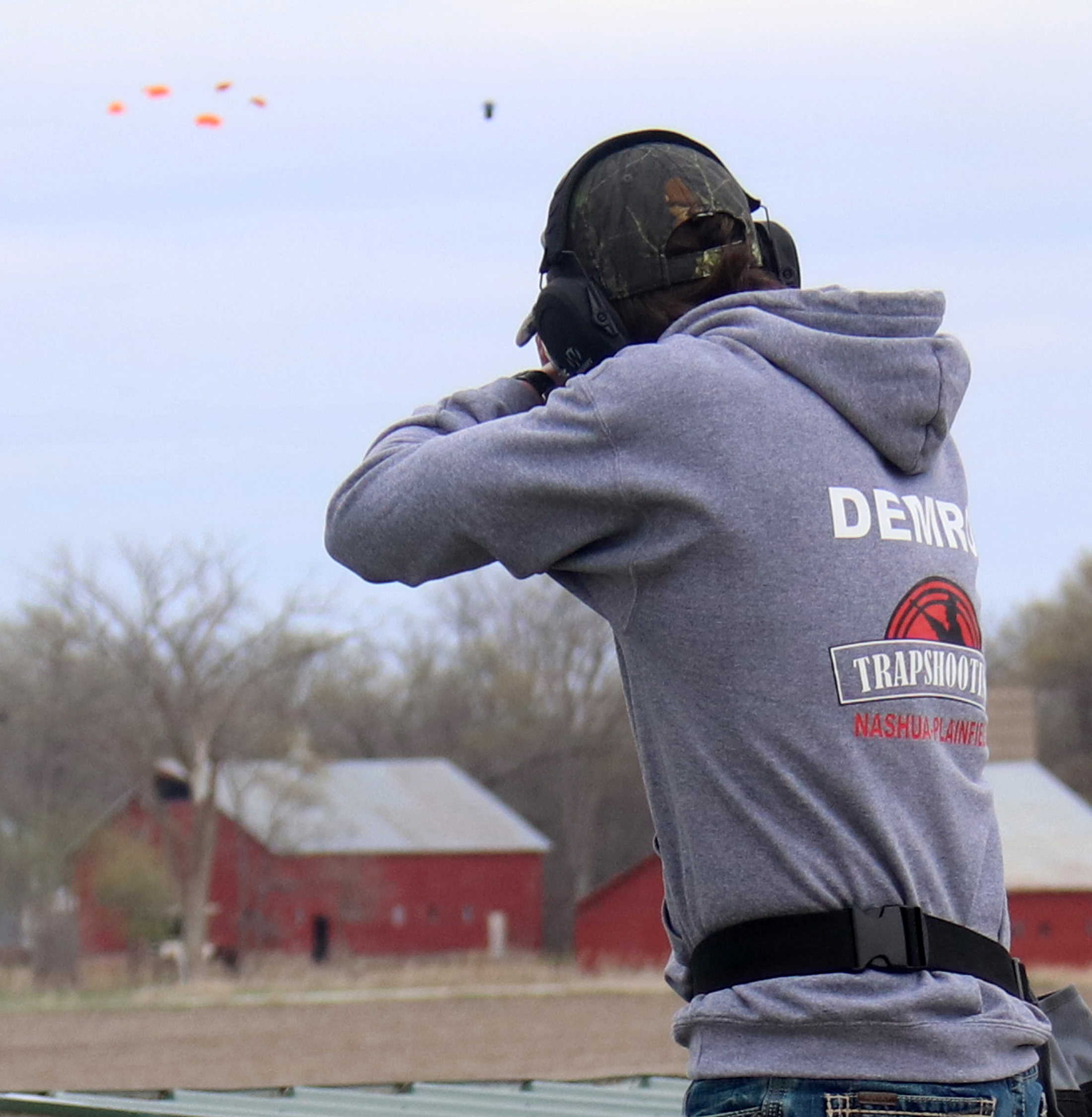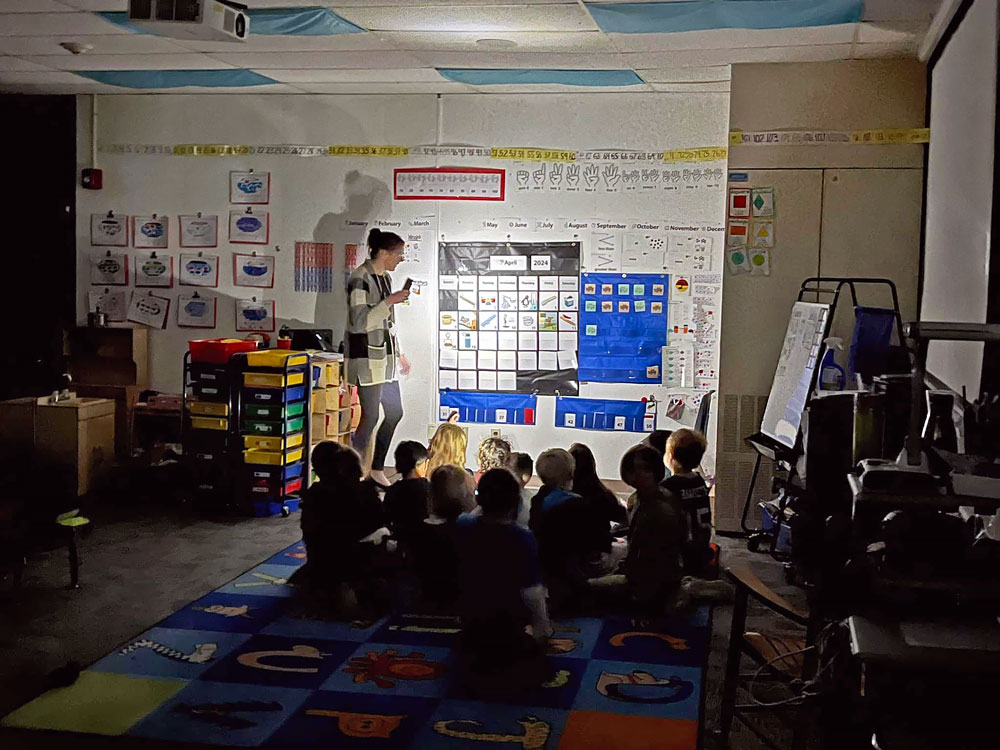Floyd County supervisors reject election petition; lawsuit threatened in response

By Bob Steenson, bsteenson@charlescitypress.com
The Floyd County Board of Supervisors voted to reject a petition that had been presented last week calling for a special election, arguing that they could not be sure the people who signed some of the pages knew what they were signing.
But their argument for denying the petition seemed to go counter to the advice the assistant county attorney had just given them, and that attorney also warned that if that was their decision it would likely end up in court.
Members of the group supporting the petition seemed to agree with that assessment. After the supervisors made their decision, one man said to the leader of the group as they were walking out, “Call the lawyer. I’ve got my checkbook ready.”
The petition, if accepted, would have caused a special election to be held in August, asking county voters which form of supervisor representation they prefer — the current at-large form, or one of two options that would divide the county into districts by population.
A group associated with the Coalition for a Better County Government turned in a petition last Tuesday, June 1, including more than 1,100 signatures on 97 pages, asking for the special election.
But County Auditor Gloria Carr noted that many of the pages did not include the language at the top of the page explaining what the petition was about. She told the group her understanding of how petitions for elections work is that information has to be on every page with signatures, or those signatures are not valid.
There were only 652 signatures on pages that included the petition language. The required number was 809, based on 10% of the votes in the last general election.
That led to a verbal standoff with the group that included calls to the Secretary of State’s office by Carr and calls to their attorney by the group members. Carr eventually took the petition, but said it would be up to the county Board of Supervisors whether the petition would be validated.
At their regular board meeting Tuesday, all three supervisors said they couldn’t be sure people who signed the pages without the petition language on them knew what they were signing.
Supervisor Chairperson Linda Tjaden said the issue wasn’t what the petition would do, but the form of the petitions, and she noted that all the supervisors had experience filing nominating petitions to be elected that required the petition language to be on every page.
However, just minutes earlier, Randall Tilton, the Floyd County assistant county attorney, had told the board that his interpretation of the Iowa Code, case law and an Iowa attorney general opinion led him to conclude it wasn’t a code requirement that the petition language be on every page for this kind of petition.
“It’s my opinion that the code sections involving these elections are far from clear. You have three different code sections that could apply,” Tilton said.
He said the code dealing with the supervisor special election only mentioned the requirement for signature, address and date of signing, and another part of the code that did require the petition language to be on every page dealt directly with petitions to nominate candidates for election.
That’s the same argument the petition group and their attorney have made — that it’s two separate parts of the Iowa Code and the rules for one don’t affect the other.
Tilton said an Iowa Supreme Court case decided in 2007, Berent v. City of Iowa City, wasn’t directly related to the Floyd County situation, but dealt with a petition to force a special election regarding a change in the city charter.
“The only requirements that it had was that there be a signature of the elector, residence and the date it was signed. And the court went on to say that, basically, the city, or the city council, could not add any further requirements — that those could be the only requirements in regard to that petition,” Tilton said.
The Iowa Code sections being discussed in the county situation were already on the books when the Iowa Supreme Court made its ruling in the Iowa City case, so the court was aware of them, Tilton said.
He also said an Iowa Attorney General Office opinion, issued in 1980, before the Iowa Code sections had been passed, dealt with a county government issue and it, too, said the only requirements for that petition were signature, address and date.
Later in the meeting, Supervisor Roy Schwickerath asked Tilton if he would support whichever decision the board made.
Tilton said, “I’ll take it either way. If you would accept this petition and call for a special election, I do not see much if any of a likelihood that that decision being contested or anybody filing an action in regard to it. Now, if you went the other route and rejected this petition, I would say there is a very good likelihood that legal action would be filed.”
Tilton said he based this in part on actions taken by the attorney helping the coalition group with the petition, Michael Byrne of Mason City, who requested an email from the county auditor acknowledging that the petition had been submitted before the deadline.
“I made the comment to him that, it sounds to me, Mike, like you are basically protecting a future lawsuit if this is rejected. He didn’t say yes, but he didn’t deny it either. The silence gave me my answer,” Tilton said.
Tilton said it was the county board’s decision to make, but concluded, “Like I outlined before, although there is not a lot of case law or legal support, what legal support I found, my interpretation would be in favor of the position of accepting the petitions provided they have a signature, an address and a date of signing.”
Almost a dozen people attended the meeting, most of them wanting the supervisors to accept the petition and set a special election, and some angry at the prospect of a different result.
Chairperson Tjaden said she would allow comments from the people at the meeting, but the discussion quickly grew tense, with people interrupting others and Tjadan several times saying, “Hold on, hold on” and admonishing “we need to be decent.”
Dennis Shollenbarger led off the comments, saying, “My question is, what are you people afraid of? Why are we doing this? Why are we wasting all of this time? It’s what the public wants.”
The idea of whether people who sign a petition or even vote in an election understand what they are doing became a running topic during the discussion.
Several people referred to the bond election in 2018 that approved issuing bonds for up to $13.5 million to build a new law enforcement center and do updates on the courthouse, and they said many people who voted to approve the project thought the bond amount was a limit on what could be spent, not just a limit on the debt the county would incur.
The cost of that project has increased to more than $18 million, and has been the source of a great deal of the friction between the supervisors and some county residents.
Yvonne Kisch said, “Everybody, everybody I asked and talked to said, no, they thought that was it. That was your limit. … I’m saying the public really, really didn’t understand that.”
The board’s decisions on that project were the source of another petition by the same coalition group that forced a recent State Appeal Board hearing.
Gordon Boge, president of the Coalition for Better County Government, observed that although the bond issue had passed by 68% of the vote, only 1,228 people had voted in that election in favor of it — roughly the same number of signatures on the petitions they had turned in.
“How can you deny the 1,100-plus signatures on the petition when you have spent more than $13½ million … of taxpayer money based on the 1,228 yes votes you got?” Boge asked. “The people who signed this petition and those who presented it to the auditor on June 1 deserve equal respect.”
Tjaden said, “I have heard from some of the people who signed it. And they were not told what it really was about.”
Supervisor Doug Kamm said, “I would concur with that. I had three different people tell me … a guy drove up in a white pickup, threw a white sheet of paper at him, there was nothing on it, and wouldn’t take no for an answer, left in a huff.”
Kamm said, “I’ve heard that on both of your petition drives. You shrug your shoulders, but …”
He was interrupted by a man who asked, “Who were they?”
“Yeah,” Boge echoed. “Who were they?”
“I’m not going to bring that up here,” Kamm said.
“It’s not going to be credible if you can’t tell us who it was,” someone in the audience said.
Brandi Schmidt, the county deputy assessor, commented about the group’s previous petition regarding the state budget review.
“We received multiple calls and comments because our assessment notices went out the same week that petition was being circulated, and there was a large group of people who thought that signing that petition for the budget hearing was petitioning their valuations,” Schmidt said.
Supervisor Roy Schwickerath said if the people want the special election it should be held.
“But there’s rules set in place and there’s standards that auditors use for elections, and that is that it should have the heading on the top of the signature page, because otherwise somebody could be signing a page and not know really what they’re signing. And that’s the real problem with this whole thing,” he said.
Schwickerath made the motion that the board deny the petition “based on the fact that there are not sufficient signatures on the pages that specifically said what the petition is for.”
After Kamm seconded the motion, Boge said, “The $9,000 for the special election is going to be a lot cheaper by the time we fight this in court,” referring to an estimate earlier in the meeting by Auditor Carr on the cost of a special election.
“We don’t need threats, Gordy,” Tjaden said.
“No, I’m just stating a fact,” Boge said.
It is unknown what impact a lawsuit on the matter would have, or how quickly it could be decided.
Asked about it after the meeting, Tilton said that with the present judicial climate it’s unlikely a case would be decided quickly.
Because of COVID-19 mitigation efforts that effectively closed courtrooms for months, many cases in Iowa district courts have been delayed.
And because criminal cases have to take priority because of constitutional “speedy trial” time limits, some civil cases already in the system aren’t scheduled for trial for a year or more.
The Iowa Code also sets specific dates for the process of deciding the form of supervisor representation.
A valid petition has to be filed by June 1 of an odd year, then a special election is held on the first Tuesday in August. If the voters would chose a form of supervisor representation that requires the county to be divided into districts, those districts have to be decided no later than Nov. 1 that year and submitted to the state commissioner of elections.
The new districts would become effective Jan. 1 and would be in place for the general election that year.
Tilton said it was unlikely a case would be fast-tracked to be decided in time for an August special election. Besides getting through the court system, there are requirements that notices of a special election be published beginning three weeks in advance.
It’s possible a judge could order a special election be held on a different timetable, but Tilton agreed with a comment that it might be just as quick for the group to do another petition drive in two years rather than fight the decision in court.








Social Share